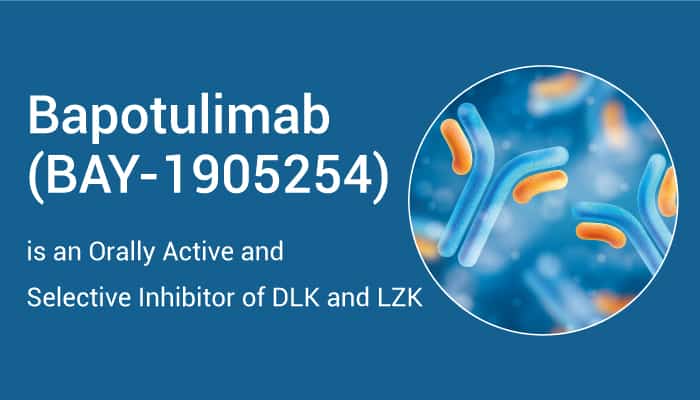Immunoglobulin-like domain containing receptor 2 (ILDR2) is a B7-like protein that belongs to the B7 family of immunomodulatory receptors. It can induce an immunosuppressive effect on T-cell responses. ILDR2 is a negative regulator for T cells. Besides, ILDR2 is expressed in immune cells and in immune-privileged and inflamed tissues.
Cancer cells can employ immune checkpoints and then block the anti-tumor immune responses. Due to ILDR2 having an immunosuppressive effect as well as inhibiting T-cell activity, the inhibition of the immunosuppressive effects of ILDR2 on T-cell activation has become a strategy for cancer immunotherapy.
Bapotulimab (BAY-1905254) is an IgG2 antibody targeting ILDR2.

Bapotulimab can block the immunosuppressive effects of ILDR2 on T-cell activation and promote antigen-specific T-cell responses. This antibody has mouse/human cross-reactivity (because ILDR2 has high orthologs between the extracellular domains of human and mouse sequences).
Following the in vitro experiment results, Bapotulimab could disrupt the binding of ILDR2 to its putative receptor on T cells. Also, it partially reversed the immunosuppressive effect of ILDR2-Fc (suppressed IFNγ secretion by T cells and T-cell proliferation).
In addition, in vivo, Bapotulimab (i.p., 10 mg/kg, every 3 days) reduced tumor growth in a weakly immunogenic B16F10 mouse melanoma model compared with the control group (with a T/Cvolume ratio of 0.63). The same administration of this antibody also exhibited good antitumor effects in the more immunogenic MBT-2 bladder cancer and CT26 colon cancer models. Importantly, it is well tolerated and does not exhibit treatment-related body weight loss.
In conclusion, Bapotulimab is an ILDR2 IgG antibody that blocks the immunosuppressive effects of ILDR2 on T-cell activation. It has the potential to research cancer immunotherapy.
References:
1. Hecht I, et al. J Immunol. 2018 Mar 15;200(6):2025-2037.
2. Julia Huetter, et al. Cancer Immunol Res. 2020 Jul;8(7):895-911.